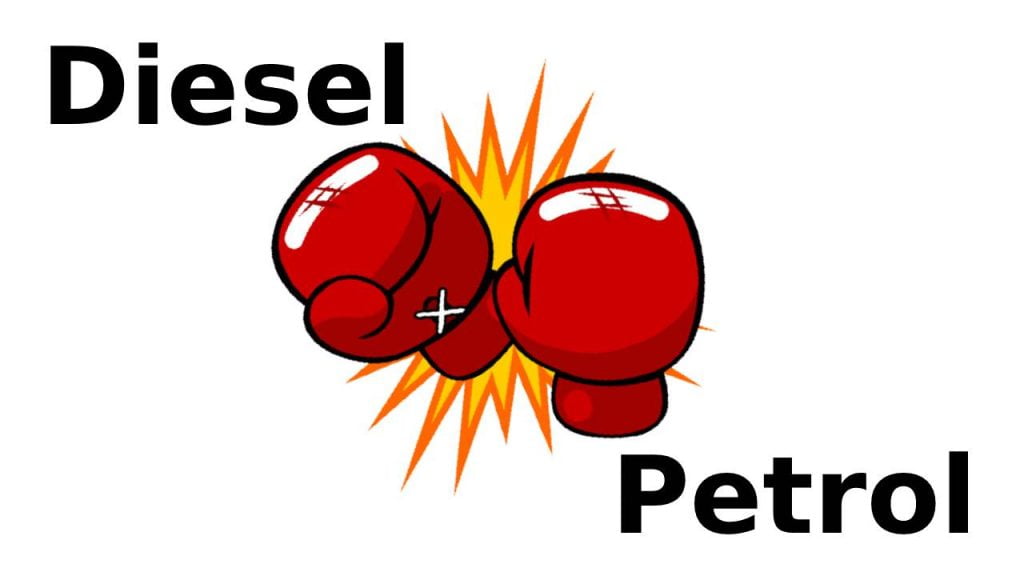Over the past couple of years, more and more carmakers have been doing away with their diesel powertrains completely. The reasons for that are plenty. The main point of contention is the ever so stringent becoming emission regulations across the globe. All the markets in the world have been introducing updated emission laws to allow for even less exhaust gas emissions from the vehicles. This is done to make future mobility more sustainable and environment-friendly. That is the trend, as well as the necessity going forward. Secondly, updating these diesel engines to meet the emission requirements will take a lot of investment in R&D and developing technology. This will invariably shoot the prices of diesel cars way up than they already are. Thirdly, the introduction of turbo petrol engines have made sure that the drivers never feel that lack of low-end torque that some of the people loved about the diesel engines.
Also read: The Vehicle Scrappage Policy announced by Nitin Gadkari!

All factors combined, it doesn’t make too much sense to continue developing diesel engines to meet the regularly updating emission regulations. Instead, in fact, the carmakers are investing heavily in hybridization and complete electrification. With almost all the major carmakers around the globe setting huge targets for electrification for the next 5-10 years, the arrival of electric cars is imminent. The general trend has already shifted away from diesel powertrains and the hybrid and turbo petrol engines seem to bridge that plunge from internal combustion engines to fully electric vehicles for the time being. The data backs up this claim too. In February 2021, the percentage of overall car sales with petrol engines is well over 80%. This clearly shows the inclination of customers towards petrol engines. This is also the reason why the EV market is throbbing at the moment. However, the EVs are still substantially more expensive than their ICE counterparts. With time this is bound to change and with the advancement in technology, people will embrace EVs better.
Also read: Car Sales Report for February 2021 – Brief Overview!
Car Sales for various OEMs
We already know that Maruti Suzuki is operating petrol-only at the moment. Hyundai sold over 77% petrol-powered cars in February and the diesel sales were largely due to the two popular SUVs (Creta and Venue) alone. The homegrown carmaker, Mahindra is one of the few exceptions in our industry with over 87% sales coming from its diesel powertrains. That has been a part of Mahindra’s DNA since its inception. Its other countrymate, Tata Motors has also followed the current trend, with over 77% sales from its petrol-powered cars. The relatively new SUV brand in India, Kia, has been maintaining a superb balance between both the powertrains. Kia has sold 58% petrol products and 42% diesel products. The same is the case with Toyota with over 56% diesel and 44% petrol sales.
Also read: EV Car Sales Report for February 2021 – EV Market Share!
Renault, Nissan, Volkswagen and Skoda have been operating with their petrol-only products since the implementation of BS6 emission norms in India. All of these automakers have turbocharged petrol engines in their lineup to compensate, in some form, for the lack of diesel options. Ford sits right in the middle of the market with 51% sales coming from petrol engines. MG has seen around 70% of its sales coming from petrol powertrains, even with just SUVs in their lineup. Honda has shifted towards petrol products heavily as well with above 85% sales from petrol powertrains. FCA (Jeep) has almost a 50-50 split between its diesel and petrol sales in the country for the month of February.
Also read: Luxury Car Segment Sales for February 2021!
The post Over 80% Car Sales In February Came From Petrol Engines – Has The Market Spoken? appeared first on Car Blog India.
from Car Blog India https://bit.ly/3rdIuc0
Comments
Post a Comment